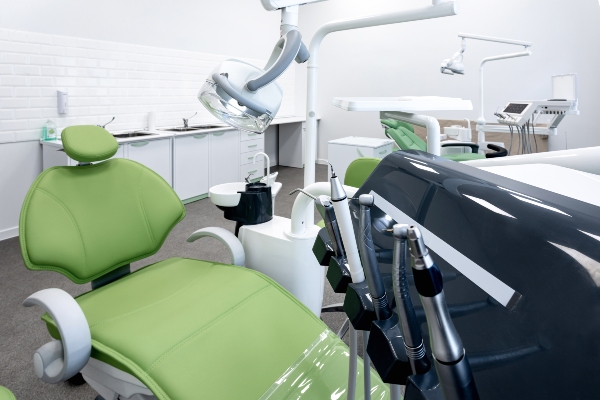What Are Full Mouth Dental Implants?

Dental implants have always been the most stable restorations you could ever have. They are a level higher than traditional dentures or fixed bridges. Each implant mimics the basic structures of a natural tooth. It is stable on its own. Imagine what it would be like to have them replace your dental arches. If you want to know what full-mouth dental implants are, here are the details.
Preserve remaining teeth
Other dental restorations will need to depend on natural teeth for support. This could cause damage to the natural dentition. The damage then weakens the natural teeth. Full-mouth dental implants can still keep the remaining natural teeth intact. The fixed position of these restorations stops the neighboring natural teeth from shifting. These implants support themselves and do not depend on neighboring natural teeth for support.
Prevents bone loss
Dental roots anchor to the jawbone. Tooth loss removes the dental roots. This deprives the jawbone of the needed stimulation. The body then stops sending valuable nutrients for tissue repair and cell growth. This results in bone loss.
Sagging cheeks and sunken mouth result from jawbone loss. This develops wrinkles. The individual then looks much older. Full-mouth dental implants have artificial dental roots in the form of titanium rods.
The dentist places the rods in the drilled implant holes. The prosthetic roots stimulate the jawbone, which starts to thicken again. The body continues to send nutrients to the jawbone. This strengthens and stabilizes the titanium rods even more. The facial structures lift and make the individual look younger again.
Need minimal maintenance yet last a long time
Traditional dentures use the neighboring natural teeth for anchorage and stability. They need regular brushing and overnight soaking. This can be a tedious routine for many busy people. Removing dental replacements can also result in loss or breakage. This will not happen with full-mouth dental implants.
These implants depend on the surrounding gum and bone tissues for support. These organic structures grow around the titanium rods. The implants become part of the dental structure. They do not need replacements or repairs. Good oral hygiene is enough to keep these restorations in top form. Routine dental checks can also help make them last for up to 30 years.
Give more strength and stability
Full-mouth dental implants look and feel like natural teeth. The attachment of these restorations to the jawbone and gums makes them strong and stable. These implants can withstand huge amounts of pressure. Having them in the mouth makes each bite stronger. Each chew feels natural as well. These dental replacements allow the individual to eat even the most challenging foods.
Proper maintenance
Practicing good daily dental hygiene can help keep these dental implants in top shape. Correct flossing and brushing can make this possible. Porcelain dental crowns may be durable, but these restorations can still suffer from cracks and chips. Staying away from hard foods can prevent damage to the prosthetics. Crossing out hard candies and refraining from chewing ice can help keep these implants intact for decades.
Using a soft-bristled toothbrush can prevent abrasions on the dental crowns during cleaning. Brushing at least two times a day can remove food particles and plaque. These thin bristles can reach difficult areas. Cleaning the crevices can prevent the sticky plaque from staying on them for a long time. This will prevent the formation of hard dental calculus.
Gum stimulators can help tissue regeneration. These devices strengthen the gum tissue by increasing the amount of oxygenated blood flow to the jawbone and gum tissues. Massages can help improve the health of gum tissue. These massages reduce inflammation and bleeding.
Using water flossers or oral irrigators can help decrease the buildup of plaque around the implants. These devices have different tips to assist the patient in cleaning the implants. Avoiding abrasive dental products can keep the dental prosthetics and surrounding gums free from scratches.
Setting routine dental appointments every three to six months allows the dentist to check how the implants are doing. This is also a chance for the dentist to clean around the implants. A dental X-ray can help review what is happening in the jawbone and gum tissue. The dentist will take this opportunity to make adjustments if the implants need it.
Full-mouth dental implants can improve your dental and general health
Proper dental replacements can enhance every aspect of daily living. These restorations can help you chew, speak, and even smile with ease. Full-mouth dental implants can provide you with the stability and security you need in dental restorations. Your dentist can determine if you are a good candidate for this type of dental replacement.
Are you considering getting dental implants in the San Francisco area? Get more information at https://serenitydentalspa.com.
Check out what others are saying about our dental services on Yelp: Dental Implants in San Francisco, CA.
Related Posts
Though implant crowns and traditional dental crowns look almost identical, they serve different purposes. Implant crowns are key to tooth replacement involving dental implants, while traditional ones primarily reinforce and repair natural teeth. Understanding the differences between these options can help patients make informed decisions regarding restoring their smile.Implant crowns are attached to a dental…
One of the leading tooth replacement choices dentists and patients are opting for is dental implants. When it comes to tooth replacement, evaluating the different options can sometimes seem overwhelming. However, with dental technology becoming more advanced and available for people with one or more missing teeth, there is an option for almost everyone. This…
For those who severely damage or lose a permanent tooth, dental implants can restore the appearance and function of a healthy smile. This option produces a durable and more natural-looking replacement than other alternatives, such as crowns or bridges. While the treatment process can be lengthy, most patients find they can return to a normal…
For many people, dental implants are life-changing, as they drastically improve the appearance of the smile and increase overall comfort and function. That said, the process of installing implants is invasive, requiring several surgeries. As with any surgery, proper care post-implantation is key to preventing infection and ensuring the procedure’s success.Any area of the body…


